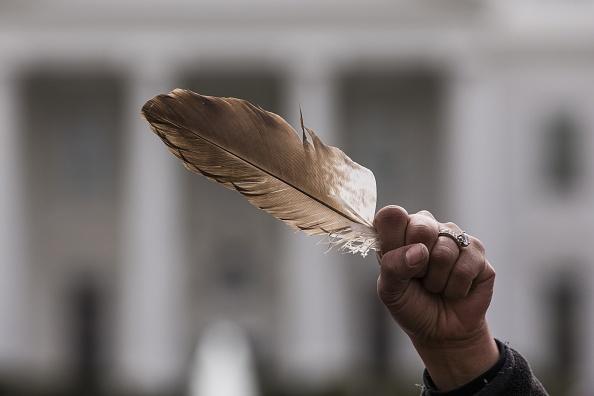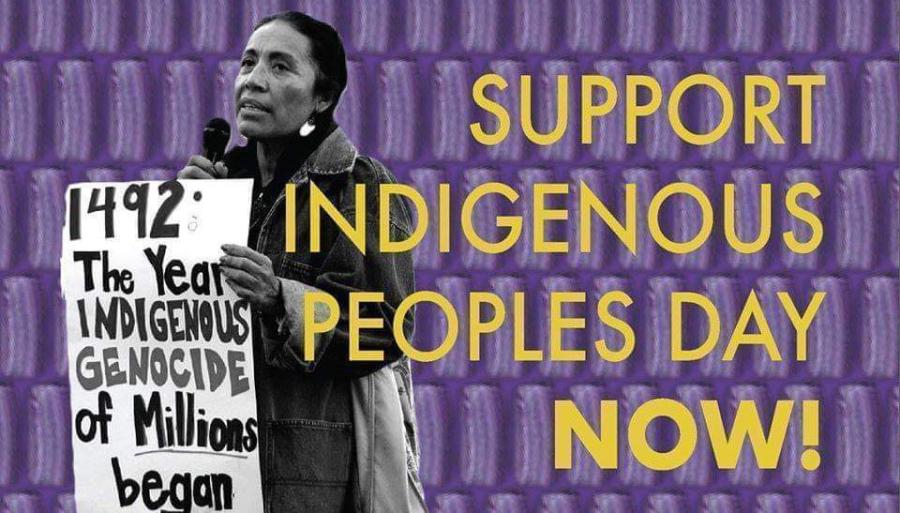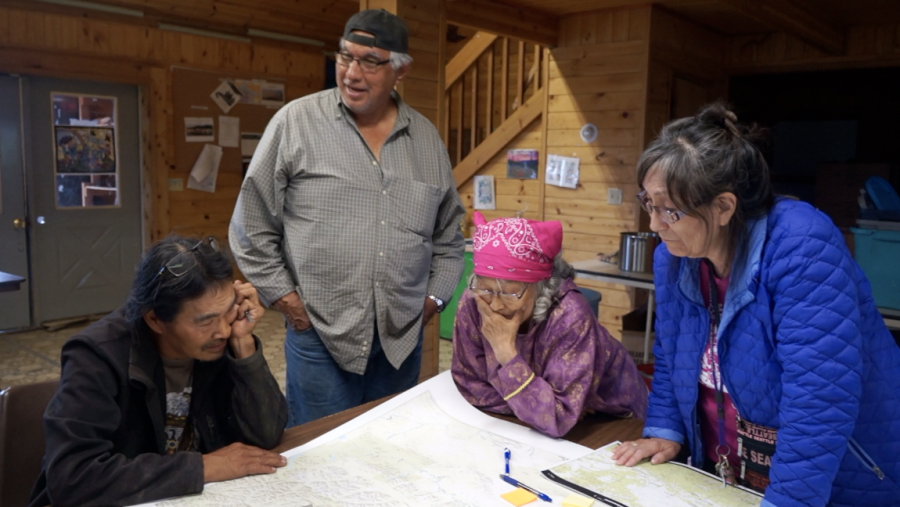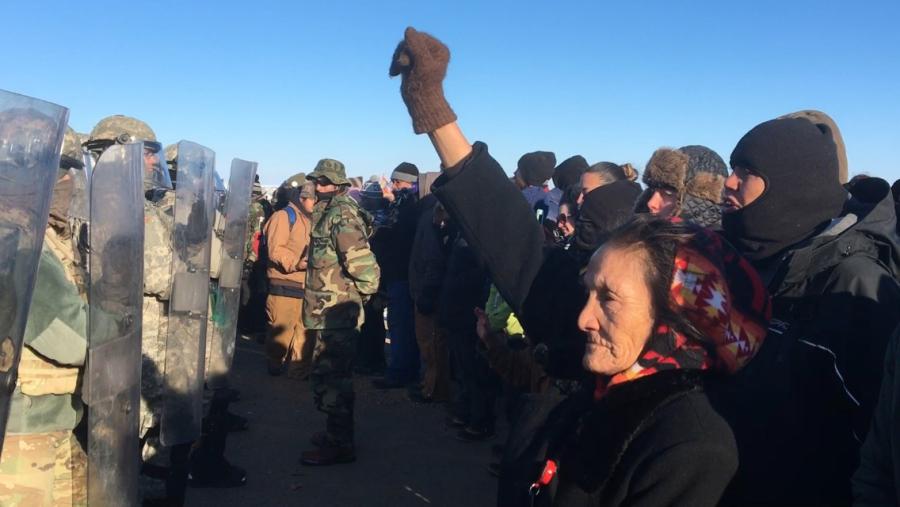
By Tristan Suarez
Native American and human rights organizations around the Commonwealth are currently working to pass five bills before the current legislative session in Massachusetts. All five of these bills are working to address long-standing problems within Massachusetts and American society towards Native communities. On February 5, 2020, the state will decide the fate of key issues such as the removal of racist iconography in school mascots and state symbolism, changing Columbus Day to Indigenous Peoples Day, the protection of Native artifacts and heritage, and the creation of a permanent commission on Indigenous education within the state.
Massachusetts, being one of the oldest settlements in North America, has a long and brutal history in regard to its treatment of Native communities. The state itself is represented by the image of a Native man beneath a lofted sword, symbolizing how Native Peoples were perceived by colonial authorities. Massachusetts history is one rife with brutalities, insensitivity, and general disregard for all Native Peoples. Across the state, monikers of colonial dominance can be seen in churlish representations of Native American team mascots and school symbols. Public schools continue to diminutize centuries of violence and cultural genocide by celebrating racial caricatures. In Massachusetts, there are still close to 40 schools which use imagery and names that depict Native Americans. Bills S.247/H.443 and S.1877/H.2776 would work to remove racist imagery from state symbols and schools respectively.
North Quincy High School in Massachusetts is one example of a school that has adamantly held on to its cartoonish Native American mascot. As a former student, I can attest to the prevalence and general acceptance the community has had for the mascot, ‘Yakoo’. Teachers, students, and alumni of the school have defended the mascot’s continued existence for years. In 1991, the school was brought before the federal civil rights office in Boston. After an initial investigation, the city concluded that the mascot was only ‘situationally offensive’. Quincy parents continue to voice their support. Thomas Koch, the city’s mayor said in 2017, “This is a very innocent mascot...I just think we’re making a mountain out of a molehill here.” Jordan Alexander, a former student at the school, recently reflected on his time wearing the mascot outfit, “I’m actually guilty of wearing the get up they had for it once. But once I educated myself about it, I realized how incredibly racist it is.”
The image of the “leathered and feathered” Native has been the facilitator of many decades of exclusion, violence, and exploitation against Native people for centuries. Quincy, and thirty-seven other schools with “redskin” mascots engage with racist imagery that dates as far back as an era in which it was common belief among white men that Native Americans should not be allowed to exist in this country.
Christopher Columbus has been recognized as the Father of the Atlantic Slave Trade, the progenitor of Indigenous genocide, and is continually celebrated in Massachusetts every October. Indigenous People in Massachusetts are forgotten by the state every year by its refusal to change the context of the holiday. In 1989, South Dakota became the first state to alter the holiday to reflect and celebrate Native perseverance and culture. Cities like Cambridge, Somerville, and Brookline have all agreed it is time to stop aggrandizing Columbus and to start recognizing the resilience of Indigenous Peoples. Cultural Survival shared at the time of the name change in Cambridge, “This is part of a growing movement across the country to change the narrative of history towards a recognition of the survival, resilience, diversity, and strength of Indigenous Peoples, who are among us as residents in Massachusetts and indeed across New England, the United States, and the world.” The bill on the table for the 2020 session, H.3665, would ensure that Massachusetts as a state would be obliged to honor the experiences and contemporary realities of Native Peoples.
Massachusetts, long lauded for its academic tradition and respect for history, also continues to disrespect Native archaeology and heritage. In 1990, the Federal Government passed the Native American Graves and Repatriation Act (NAGPRA), requiring all states to protect and return all grave goods, remains, and signifiers of cultural autonomy to Native hands. While this should have ensured the protection of sacred objects, as recently as 2018, Medford city council was forced to cancel an auction of Native artifacts after concern were voiced that the city may have violated the terms of the Native American Graves and Repatriation Act. Bill H. 2948/S. 1811 would ensure the state’s total commitment to Federal agreements over Native sovereignty over cultural items and ensure continued efforts to safeguard artifacts, history, and culture for generations to come.
While many of the issues on the table for the 2020 legislature have their roots in the deep seeded content of the past, Native youth in contemporary Massachusetts are also being considered. One of the five bills, H. 444, is a move to create a permanent board of Indigenous education in Massachusetts. If passed, this group would indefinitely work to allocate funds and labor to enhancement of education throughout the reservations and public schools of the state. Raising graduation rates, improving proficiency in Math and Sciences, and advocating for greater representation and awareness from state resources are all goals this board would work to achieve. In Massachusetts, only 3.1 percent of Native students are included in the state aggregate with no differentiation between Native Hawaiian or Alaskan and Massachusetts Native students. A board like this could help ensure that the necessary consideration be taken for students of different identities and address the specific needs of those communities.
To support these bills, here’s what you can do. Visit the Massachusetts Indigenous Legislative Agenda at their website and write letters to your local representatives. It is crucial these bills pass in order to create a better, socially reflective, and inclusive for Indigenous Peoples and all peoples across the Commonwealth. At their website, templates for letters that can be sent are offered, making it simple for readers to offer their thoughts and support.
Photo courtesy of maindigenousagenda.org.



